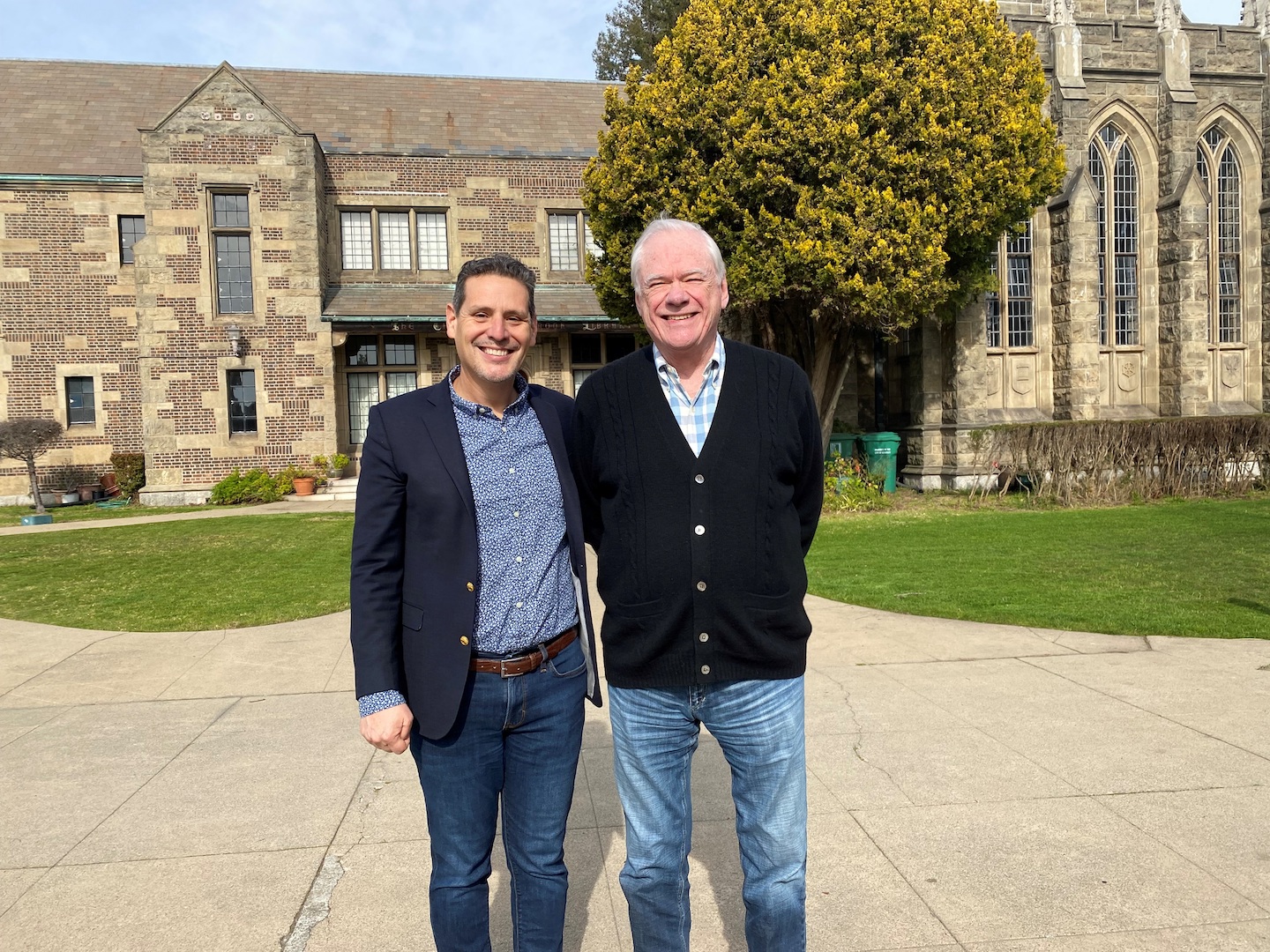As we begin our new series, “Donor Spotlight,” we are delighted to introduce you to PSR alumnx and former board member, Stanley Watson. This year Pacific School of Religion received a $3.5M legacy gift from Mr. Watson to fund the Stanley Watson Endowed Chair in Ethics. The rotating position will be open to existing or visiting faculty engaged in cutting-edge teaching and research on ethics across diverse fields of study, strengthening PSR’s 150+ year mission to create spiritually rooted leaders with a strong foundation and formation in ethics.

Tell us about your connection to PSR. What first brought you to PSR?
I came to PSR in the midst of the AIDS epidemic. I had been a practicing lawyer, with a Silicon Valley law firm. It was one of those big, fast-moving practices. But against the background of friends getting ill, that became less and less of interest. So I decided to resign from my partnership and take a step back and figure out what was the next step forward. I was in my late thirties, and with friends dying, it kind of brought home a sense of mortality that normally one may not get to until you’re in your seventies or so.
I had a friend who was doing coursework at San Francisco Theological Seminary (SFTS) and studying for the ministry. We were talking about where I was and how I was stepping out of the current chapter of my life into something else. I said, “I’m going to go to Europe for a few months, but I don’t know really what the next step is.”
She said, “You may want to just check out what theological education might suggest to you in terms of asking some of the big questions you’re ready to ask.”
That planted the seed. And I love to go to school, so I began taking courses. The Graduate Theological Union (GTU) was very attractive to me because I could do a cafeteria-style approach. I would look forward to the catalog coming out to see what courses might appeal to me. After two years I was just really enjoying the work.
But I thought, eventually I’m going to have to go back to work, and I’m not ready to go back yet. So, I decided to concentrate on an area of study and I thought, what goes best with law? And ethics of course was the logical choice. So I applied to the GTU Common MA in Ethics. I affiliated with PSR and could take courses from any of the GTU schools. I graduated in 1990. I was fortunate in having my thesis committee chaired by Karen Lebacqz.
After I received my degree, John Golenski, who had been on my thesis committee, invited me to become an ethicist with him in his ethics practice. He said he could use somebody with a law background. And I said, great. So, I began working with him.
In 2011, I was invited to join PSR’s Board of Trustees. I joined and became chair of the academic committee and served for nine years. It was a very rich time, very creative, and I thoroughly enjoyed being on the board.
What makes PSR distinctive?
Well, not only the fact that it’s been around for over 150 years, but it has been, as the motto says, Unafraid. Everything from its stance during World War II with regard to the internment of the Japanese, to its fairly early addition of women to the faculty, to, more currently, PSR people out there supporting the Black Lives Matter movement. We don’t hide behind old thinking. It’s always been open. PSR has been forward-thinking for as long as it’s been around.
What would you say has been the biggest impact that PSR has had in your life?
I got my master’s in ethics from PSR which allowed me to pivot in my career. I was still a lawyer but now I had a specialization in ethics. I joined Kaiser Permanente, first as legal counsel and had a heavy involvement in institutional review boards and ethics committees. Later I became the Director of the Kaiser Foundation Research Institute. In all these roles my education at PSR gave me a background in ways of thinking about the values aspect of delivering healthcare and medical care to a whole population.
How would you describe how PSR prepared you for that work?
At PSR I was introduced to different ways of thinking about ethics; e.g., principle-based, story-based, virtue-based approaches. PSR provided different kinds of frameworks that one can access in considering ethical questions. I’ve always thought if the question has a pretty obvious answer, then it’s really a question of morality. Ethical issues usually come with a dilemma. There are at least two sides to consider. So having a framework, or frameworks, to access in different situations is very good.
What’s your favorite memory of PSR?
I was in a group with four doctoral students. Michael Mendiola was in this group. Karen Lebacqz put together a special program for us where we went around and did different things. And both the activities, but especially just the richness of the dialogue were really terrific. And of course, I’d have to say that Karen’s classes were great.
Why do you give to PSR? What inspires you about giving?
PSR was there when I needed it. The kind of thing that PSR offers is exceptional. That was the reason I was willing to serve on the board. That also made me receptive when I was asked if I was interested in making some kind of philanthropic contribution. PSR asked me what kinds of things I would be interested in. It seemed that endowing a chair in ethics was a sort of closure of a circle. I think the way they structured the chair is very creative – the way it can rotate across disciplines. The fact that PSR is part of the GTU is another significant reason why I give to PSR. It adds depth to the bench as they say.
In addition to the endowed chair in ethics, which is a legacy gift, what other vehicles have you used for giving to PSR?
One thing that I have found helpful at my age is directing my mandatory distributions from my IRA as a charitable gift to PSR. Then you don’t have to recognize it as income. The entirety of the distribution goes to work for the organization you give it to.
